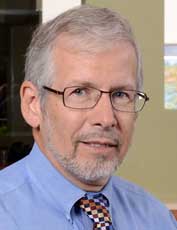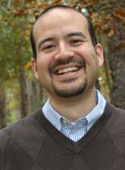By Jeff Brumley
Ministers who specialize in health and spiritual formation are hopeful Rick Warren’s new food-and-faith program may boost ongoing efforts to link body and soul in the minds of Baptists and other Christians. The Daniel Plan: 40 Days to a Healthier Life, the Saddleback Church pastor said in a release, “is far more than a diet; it is about living a healthier life based on biblical principles.”
Warren said he was inspired after baptizing 800 people in 2009 and realizing many of them were overweight — just as he was. Two years later, 15,000 members of his church lost a combined 260,000 pounds using Warren’s approach. He released the program with much fanfare last week.
But reaction to the plan has been varied from enthusiastic praise to cautious reminders that weight-loss plans — even those based on spiritual principles — can still miss the spiritual mark designers like Warren are seeking.
And one way that can happen is when participants become too focused on weight loss, said Gary Gunderson, vice president for faith and health at Wake Forest Baptist Medical Center in Winston-Salem, N.C.
 Forget the Body Mass Index and focus on how health can serve Christ, he said.
Forget the Body Mass Index and focus on how health can serve Christ, he said.
“We don’t know what Jesus’ BMI was,” Gunderson said. “He wasn’t crucified because he was fat, and he isn’t worshiped because he was skinny.”
Gunderson said that’s not a critique of Warren’s plan but of the tendency many Americans have to put body image issues ahead of biblical teachings about food.
Spirit good, body evil
Others told ABPnews that The Daniel Plan’s call for a mixture of natural foods and physical activity used on the congregations and small-groups may actually lead some participants to more holistic attitudes about the body’s role in Christian salvation.
Warren said his plan was inspired by an Old Testament passage in which Daniel refuses to eat a king’s rich foods and instead challenges the monarch to 10 days of healthier eating. The plan calls for eating whole foods, viewing physical activity as fun instead of as exercise and urges users to participate in groups for encouragement and accountability.
Warren’s idea could be helpful in countering old Christian attitudes pitting body against spirit, said Michael Sciretti Jr., minister of spiritual formation at Freemason Street Baptist Church in Norfolk, Va.
 “From the very beginning of Christianity there was a tendency to denigrate the body,” Sciretti said. “Early on, in the gnostic sects, the spirit was good and the body was evil.”
“From the very beginning of Christianity there was a tendency to denigrate the body,” Sciretti said. “Early on, in the gnostic sects, the spirit was good and the body was evil.”
It’s an attitude that has survived, perhaps in softer forms, in some Protestant traditions and particularly among many Baptists, he said.
‘The value of our body’
Sciretti said he knows that from experience. He was raised a Southern Baptist in Louisiana, a context in which little thought was given to the spiritual potential of simply eating, let alone fasting.
“Where I grew up you maybe said the prayer” before meals, he said.
But there are those developing mindful and healthy eating practices from the Apostle Paul’s call to view the body as the temple of the Holy Spirit, Sciretti said.
“A lot of people are working on (the idea that) we are embodied beings,” he said. “There is a spiritual practice to honoring the body and caring for the body.”
Warren’s plan may give a boost to that movement, Sciretti added.
“I’m sure it will be helpful to a lot of people in reclaiming the value of our body and its importance in spiritual formation.”
Warren’s foray into physical health comes at a time of rising interest in finding spiritual solutions to ailments such as hypertension, depression, heart disease and obesity, said Randy Ashcraft, pastor in residence at the Virginia Baptist Mission Board.
Ashcraft, who regularly preaches and teaches on the topic, said Christians are finally paying attention to the intersection of mind, body and spirit. “Especially among younger people … there’s an awareness of what I put in my body,” he said.
But there is also plenty of resistance, especially among some Baptists. Many remain more focused on opposing smoking, alcohol and dancing than promoting physical health.
 “The disconnect for Baptists is still there,” Ashcraft said.
“The disconnect for Baptists is still there,” Ashcraft said.
But that needs to end because overweight and otherwise unhealthy Christians — especially pastors — can be a turnoff to younger and more fit unchurched people.
“We need to drive this into the core of Christian living,” he said. “It’s part of the witness.”
For that transformation to occur, Gunderson said, Christians must come to see their food and bodies as having a larger purpose. And that purpose is spelled out in Scripture, he said, where food is a gift from God for nourishing the full life of the individual, he said.
Gunderson said that can get lost in diet and weight-loss plans named after biblical passages, such as the Ezekiel Diet. “Ezekiel is not in the Bible because of his diet, but because he was a prophet who preached repentance and justice to the poor.”
The purpose of food and good physical health is to enable Christ’s followers to do the same, Gunderson said. “If you focus on the dietary only instead of the full context, you are going to gain your BMI and lose your soul.”
